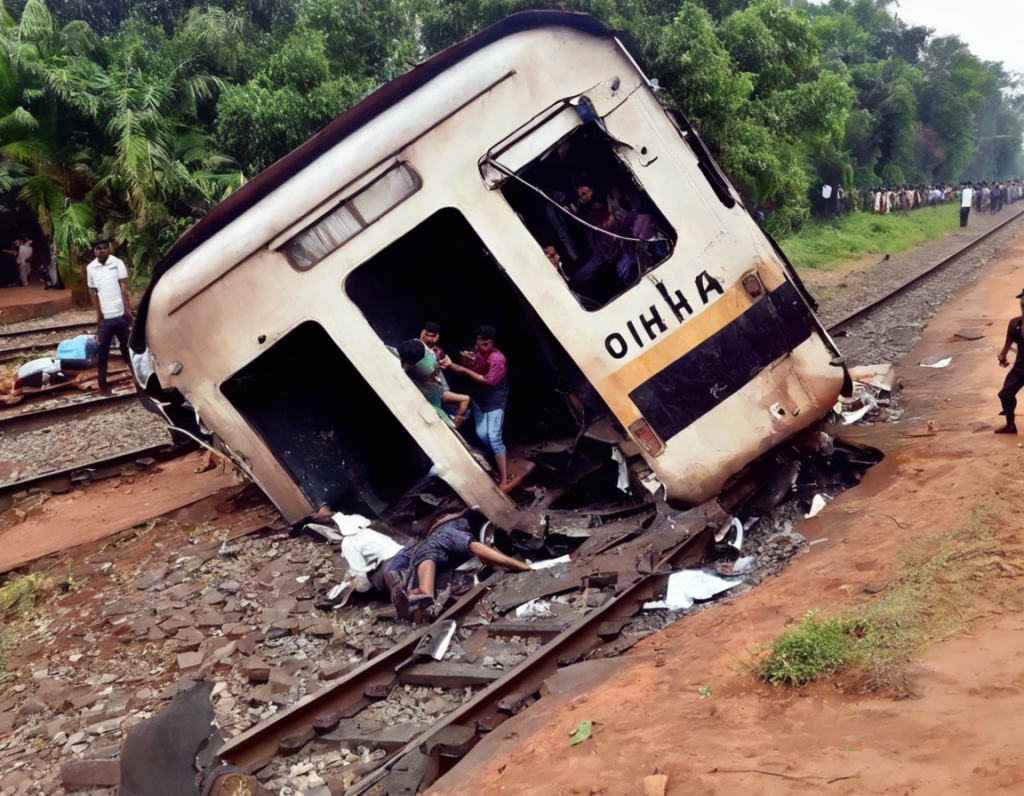On September 29, 2021, a tragic incident rocked the state of Odisha in India, as a passenger train derailed, resulting in multiple fatalities and injuries. The train accident occurred near Nergundi railway station in Cuttack district when the Bokaro-Alleppey Express derailed, causing several coaches to overturn and plunge into a nearby river. The incident sent shockwaves through the community and raised concerns about railway safety and disaster management protocols in the country.
Details of the Train Accident
The Bokaro-Alleppey Express, a popular long-distance train carrying hundreds of passengers, derailed in the early hours of the morning, while most travelers were asleep. The sudden jolt and subsequent crash led to chaos and confusion, as survivors tried to navigate the wreckage to reach safety. Emergency response teams were quickly dispatched to the scene, but the scale of the disaster posed significant challenges in rescue operations.
Causes of the Train Accident
Preliminary investigations point to a combination of factors that may have contributed to the tragic incident. Track maintenance issues, signal failures, human error, or mechanical failures are commonly cited reasons for train accidents worldwide. In this case, a detailed inquiry will be crucial to determine the exact cause and prevent similar tragedies in the future.
Impact of the Incident
The train accident in Odisha has had far-reaching consequences, affecting not only the victims and their families but also the broader community and the Indian railway system as a whole. The loss of lives, injuries, and trauma experienced by survivors will leave a lasting impact that will require emotional and psychological support. The incident has also raised questions about the maintenance and safety standards of railway infrastructure across the country.
Response and Support Efforts
In the wake of the tragic train accident, government officials, emergency services, and volunteer organizations mobilized to provide immediate relief and assistance to the affected individuals. Medical teams worked tirelessly to treat the injured, while authorities coordinated rescue and rehabilitation efforts. The community at large came together to offer support and solidarity to those impacted by the disaster.
Ensuring Railway Safety
Railway safety is a pressing issue that requires continuous attention and investment. In light of the Odisha train accident, there is a renewed emphasis on enhancing safety measures, training for railway personnel, technology upgrades, and regular inspections of tracks and equipment. It is imperative that lessons are learned from this tragedy to prevent similar incidents in the future.
Conclusion
The train accident in Odisha serves as a stark reminder of the fragility of human life and the importance of prioritizing safety and preparedness in all aspects of transportation. As the affected individuals work towards recovery and healing, the broader community must come together to support them and advocate for systemic changes that can prevent such disasters in the future.
Frequently Asked Questions (FAQs)
- What are the common causes of train accidents?
-
Train accidents can be caused by factors such as track maintenance issues, signal failures, human error, or mechanical failures.
-
How can railway safety be improved?
-
Railway safety can be enhanced through measures like regular inspections, technology upgrades, and training for railway personnel.
-
What should passengers do in case of a train emergency?
-
In case of a train emergency, passengers should follow instructions from authorities, stay calm, and help those in need.
-
How are rescue operations conducted after a train accident?
-
Rescue operations after a train accident involve emergency services, medical teams, and volunteer organizations working together to assist the injured and evacuate survivors.
-
What support is available for victims of train accidents?
- Victims of train accidents can access medical treatment, counseling services, and financial assistance through government agencies and support organizations.
